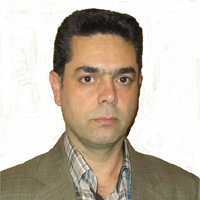Hospital Preparedness Challenges in Chemical Incidents: A Qualitative Study
A significant number of chemical events happen every year in Iran, which may require admission and management of victims in the hospital. The results of studies have shown that Iranian hospitals, like many developing countries, are not sufficiently prepared for these events. The aim of this study was to explain the challenges of hospital preparedness in chemical events in Iran.
This qualitative research was conducted with the content analysis approach in Tehran. Ten participants were enrolled using purposive sampling. Data collection was through in-depth and semi-structured interviews and continued until reaching data saturation. The selected interviewees consisted of physicians, nurses, members of the Hospital Risk Management Committee, and experts of Health in Emergencies and Disasters, who had experience in responding to and treating chemical casualties. All interviews were recorded, transcribed, imported into the MAXQDA 10 software, and analyzed using the Graneheim and Lundman method.
The main theme was “Lack of priority of chemical events for policy makers”. Five categories and eleven sub-categories were extracted. Categories relating to challenges of hospital preparedness in the management of chemical casualties included "Lack of updated plans and protocols", "Ineffective training", "Organizational challenges", "Lack of legal and financial support", and "Lack of infrastructure and decontamination equipment".
Iranian hospitals are facing challenges to acquire and maintain preparedness in response to chemical events. Therefore, national standards for hospital response to chemical events should be agreed upon by policy makers, and their implementation should be evaluated in hospital accreditation.
- حق عضویت دریافتی صرف حمایت از نشریات عضو و نگهداری، تکمیل و توسعه مگیران میشود.
- پرداخت حق اشتراک و دانلود مقالات اجازه بازنشر آن در سایر رسانههای چاپی و دیجیتال را به کاربر نمیدهد.



